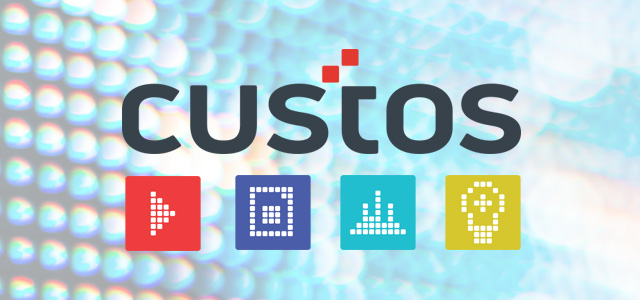The IPR Act isn’t the lazy, selfish bureaucratic dragon many thought it would be, keeping IP hoarded, and out of the hands of willing investors. Custos, who recently had their patents transferred back to them, at just the right time, is proof that nurturing IP until the inventor who developed it, and their business, is ready to manage it themselves, is a very smart idea.
When the IPR Act came into effect in late 2010, many investors and VCs weren’t exactly thrilled. The more aggressive investors decried the protection of the IP, which they would normally have swooped on and picked up for a song, and the more pragmatic investors worried about the preceived lack of ownership, and increased risk in a system they now had little control over. In reality, most of these reactions were based on misinformation, or a complete lack of understanding of what the IPR Act set out to do. What was designed as a safety-net was often seen as a noose…
As it turns out, there was absolutely nothing to be worried about. Change isn’t always a bad thing, but it is almost always scary, and the IPR Act was no different. As Innovus CEO, Anita Nel, puts it, “It is a storm in a tea cup.” But time is all that is needed for good ideas to prove their worth, and the recent developments within Innovus-favourites, Custos, are the proof many were looking for that the IPR Act, in fact, made investing in public IP an even safer bet than it was before.
Let’s recap on the reasons that the IPR Act (Intellectual Property Rights from Publicly Financed Research and Development Act) was created in the first place. In order to make sure that research developed using public funds goes back to benefit the public that paid for it (South African society), the IPR Act (similar in design to the Bayh-Dole Act in the US) legislates that the intellectual property developed within our universities is first identified and protected (where appropriate), and then utilised and commercialised. This makes sense because, too often, revolutionary ideas are left to collect little more than dust in a drawer somewhere. And, as Jetane Charsley from NIPMO, the custodians of the IPR Act puts it, “The IPR Act is doing its job beautifully!”
The IPR Act, at its heart, really ensures that everyone – South Africans, inventors and investors - benefits from great ideas, and the business formed around them. For inventors, the IPR Act requires that Technology Transfer Offices (like Innovus) manages the IP they develop, registering and patenting it, and dealing with all the associated, nebulous legalities that ensure its protection. This allows inventors to do what they do best – invent, and in many cases, establish and grow their business. It also means that the expensive tasks of registering these patents sits on someone else’s books, rather than on the back of a cash-strapped start-up. Lastly, it makes sure that, if for some reason the start-up fails, the IP isn’t locked up, and can be repurposed.
Case in point for the validity of the IPR Act is the meteoric rise of technology spin-out company, Custos. As developers on the cutting edge of block-chain technology, which they are using to fight digital piracy, they had the freedom to grow their network, strengthen their business case and prove their concept, all the while Innovus remained the stewards of the IP they were developing. This means they accelerated far faster and straighter than they would have otherwise and, before long, were a force to be reckoned with. Now ready for the transfer of their IP, Anita Nel and Custos CEO, Gert-Jan van Rooyen, developed a unique business structure for Custos, whereby the Custos IP would be owned by a separate entity, CMT Research. Anita then approached NIPMO with a motivation to request the IP transfer. The rest then happened remarkably quickly, because the two criteria (as set out in the IPR Act) were met:
"It was no trouble at all,” says G-J. “But, from day one, having Innovus in our corner to manage our patents, in a variety of countries, as well as pay for their protection, was a huge boon."
Innovus remains a shareholder of Custos, but their future is in their own hands. Thanks to what NIPMO put in place, and Innovus managed, they can keep their focus on building a sustainable, self-reliant business that will change the world. Most investors these days recognise the value of the IPR Act, and the companies developed as a result of it, and are now knocking steadily on Custos' door.
